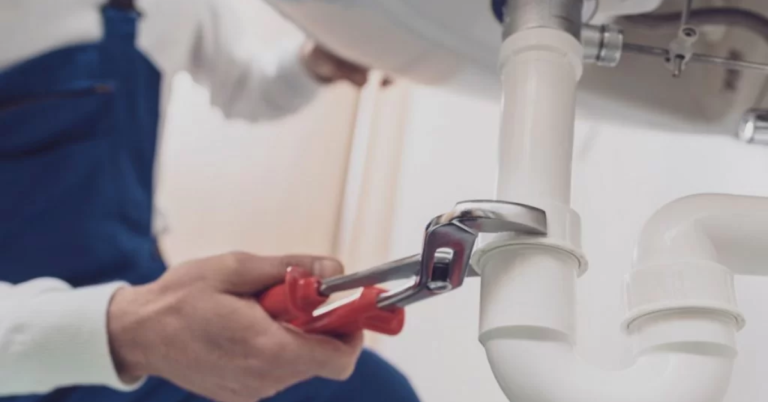Top Tips for Filing a Successful Workers’ Compensation Claim
Navigating the world of workers’ compensation claims can feel daunting, especially during a time when you’re already dealing with an injury. Whether it’s a slip-and-fall at work or a repetitive strain injury, understanding how to successfully file a workers’ compensation claim is crucial. This guide is designed to offer practical advice and tips, ensuring you’re well-equipped to handle the process and secure the benefits you deserve.
Understanding Workers’ Compensation
Workers’ compensation is a form of insurance providing wage replacement and medical benefits to employees injured during employment. It’s meant to serve as a safety net, protecting both workers and employers from the financial burdens associated with workplace injuries. Understanding the basics of this system is your first step toward a successful claim.
By knowing your rights and the protections offered, you’ll be better prepared to handle any challenges that might arise. It’s also essential to familiarize yourself with the specific laws and regulations in your state, keeping in mind that each state operates differently. For example, some states may have stricter filing deadlines or additional requirements that you’ll need to meet.
A clear understanding of what workers’ compensation is and how it functions will lay a strong foundation for your claim process. This knowledge empowers you to advocate effectively for yourself and ensures you are adequately covered during your recovery period.
Importance of Promptly Reporting Injuries
Time is of the essence when it comes to reporting workplace injuries. Delays can lead to complications in your claim, potentially jeopardizing your benefits. Your employer needs to be informed of your injury as soon as possible, ideally within 24 hours of the incident.
Prompt reporting helps create a clear record of the incident, providing essential documentation that supports your claim. This record not only details the nature of your injury but also establishes a timeline, both of which are critical if you face any disputes with your employer or insurance company.
Additionally, reporting early can expedite your access to necessary medical care, ensuring that you receive timely treatment without out-of-pocket expenses. This step is vital not just for your health, but also for the strength of your workers’ compensation claim.
Gathering Thorough Documentation
Documentation is the backbone of any successful workers’ compensation claim. Start by keeping a detailed account of the incident, including the date, time, location, and any witnesses. This information will form the basis of your claim and is crucial in establishing its validity.
Medical records are another essential component. They offer evidence of your injury’s severity and the treatment required. Ensure that all visits to doctors, specialists, or therapists are documented, along with any medications prescribed or surgeries performed.
Maintaining thorough documentation provides a clear picture of your situation, making it easier for adjusters to process your claim. It also serves as a valuable reference if you need to challenge a denial or appeal a decision, ensuring your case remains strong throughout the process.
Navigating Employer Procedures
Understanding your employer’s procedures for handling workers’ compensation claims can significantly impact your success. Each company might have unique steps or forms that need to be completed, so it’s crucial to familiarize yourself with these processes early on.
Reach out to your HR department or direct supervisor to gather all necessary information. They can provide guidance on the next steps, such as completing an accident report or visiting a company-approved doctor for an initial evaluation.
By adhering to your employer’s procedures, you demonstrate a proactive approach and commitment to resolving your claim efficiently. This diligence not only helps move the process forward but can also foster a cooperative relationship with your employer, which may prove beneficial in complex cases.
Selecting the Right Medical Professionals
Choosing the right medical professionals to treat your work-related injury is critical. Not only do they provide the necessary care, but their evaluations and reports are integral to your claim’s success. Selecting a knowledgeable and experienced professional can make a significant difference.
Ensure that your chosen provider is approved by your employer’s workers’ compensation insurance. Most policies require you to visit specific doctors or clinics, especially for initial assessments. Failure to comply could result in your treatment costs not being covered.
A trusted medical professional will give accurate diagnoses, effective treatment plans, and detailed medical documentation. These elements are essential when submitting evidence for your claim, particularly if medical opinions are disputed or contested.
Understanding Common Claim Denials
Despite your best efforts, there are times when a claim may be denied. Understanding common reasons for denial can help you avoid pitfalls. Some typical causes include insufficient documentation, late reporting, or discrepancies in your account of the incident.
If a claim is denied, don’t panic. Many denials can be appealed successfully with the right approach. Review the denial letter carefully, identifying the specific reasons provided. Gathering additional evidence or seeking legal advice can strengthen your appeal.
Persistence is key. Understanding the common grounds for denial prepares you to tackle challenges head-on, ensuring you have a strategy in place to address and rectify any issues promptly.
Seeking Legal Advice
In some cases, navigating the workers’ compensation process may require legal assistance. If your claim is denied or complicated by employer disputes, consulting a car accident lawyer in Provo can be invaluable. They possess the expertise to handle complex situations, ensuring your rights are protected.
An attorney can offer guidance on gathering additional evidence, negotiating with insurance companies, or representing you in hearings. Their involvement ensures a thorough understanding of your case, increasing the likelihood of a favorable outcome.
Don’t hesitate to seek legal help if needed. An experienced lawyer can be a crucial ally in securing the benefits you deserve, providing peace of mind and support throughout the process.
Importance of Follow-ups and Communication
Maintaining open lines of communication with all parties involved in your claim is crucial. Regular follow-ups with your employer, insurance adjuster, and medical professionals ensure everyone remains informed and aligned.
Effective communication clarifies expectations, resolves misunderstandings, and can prevent unnecessary delays. It also demonstrates your commitment to resolving the matter efficiently, which can positively influence the outcome.
By prioritizing communication, you create a collaborative environment, making it easier to address any issues that arise during your claim process and work towards a satisfactory resolution.
Conclusion
Filing a successful workers’ compensation claim requires careful attention to detail, prompt action, and effective communication. By understanding the process and preparing thoroughly, you increase your chances of receiving the benefits you need to recover and return to work. Remember, you don’t have to tackle this alone. Seeking professional advice, when necessary, can make all the difference. Stay diligent, informed, and proactive for the best outcomes.





